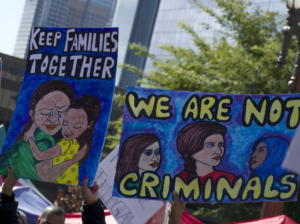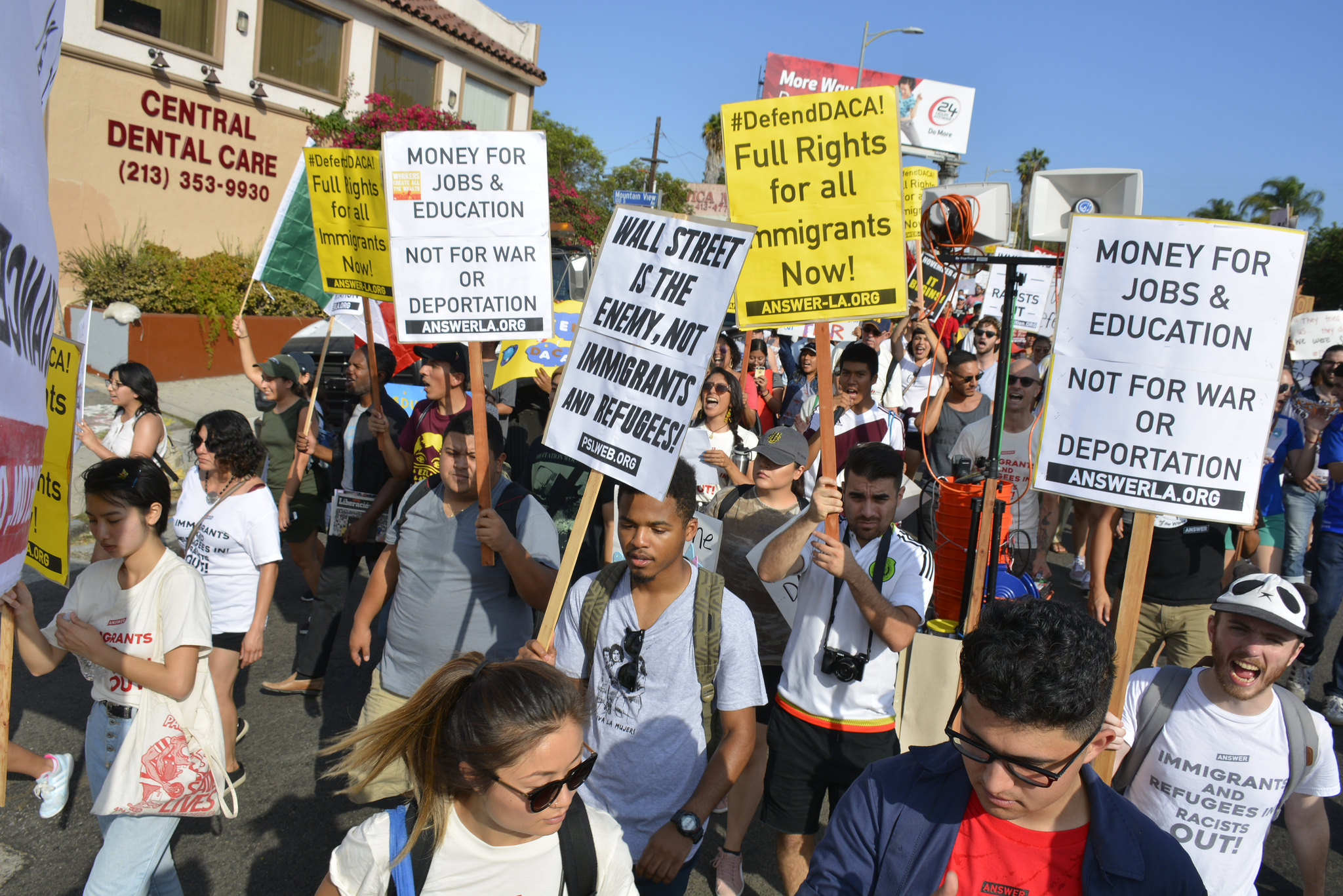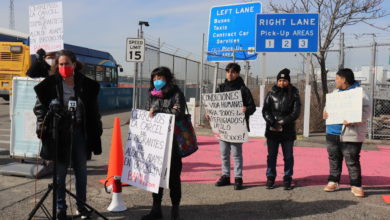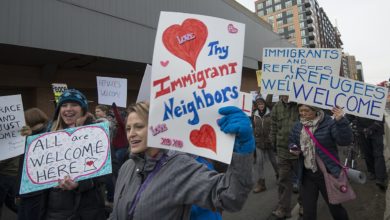
This article is based on a talk given at a PSL branch meeting by a party member who has been a TPS recipient.
On November 6, 2017, the Trump administration made the official announcement via Acting Secretary of Homeland Security Elaine Duke that they were ending the designation of Temporary Protected Status for nationals from Nicaragua. On November 20, Duke made the same announcement regarding nationals from Haiti. On Jan. 8, the same announcement was made for national from El Salvador.
Essentially what the Trump administration has done by refusing to continue these statuses is put hundreds of thousands of migrants on a timer until they are left without protection from deportation. Like recipients of Deferred Action for Childhood Arrivals, TPS recipients face not only the risk of living and working in this country without legal protection, they are also up against an administration armed with extensive knowledge of where they live, where they work, and who their networks are. In other words, for people like me, it’s only a matter of time until we’re easy pickings for ICE.
What officials from the administration seem to focus on when discussing the end of the TPS designation for these countries has been the “temporary” nature of the status and how it was never meant to be a permanent solution. What they seem to ignore is why all of these migrants were forced to come to the United States in the first place, and why the United States came up with the TPS band-aid.
“TPS is an immigration status granted to those migrating to the United States from specific countries that have been determined unsafe to return to due to conflicts like civil war and environmental disasters. This status protects individuals from being detained or deported and allows them to pursue work and education in the United States. TPS recipients come from Central American, Caribbean, Middle Eastern and African nations that have predominantly suffered from U.S. intervention, including Honduras, Syria and Yemen.” (Liberation News)
While the various administrations that have granted TPS designations have pitched them to voters and to the international community as gracious humanitarian gestures, the pattern seems to be that the nations granted TPS in the first place are ones with extensive histories of U.S. intervention, particularly in ways that lead to economic and political destabilization.
For example, Honduras has been an important foothold for the United States’ political domination of Central America since the late 19th century and the beginning of the nation’s status as a “banana republic” when its economy was almost entirely dominated by its fruit exports to the United States and its politics were controlled by the corporate interests of the U.S.-based fruit companies. In the 20th century, that influence and control became more explicitly military.
In the 1960s, the United States backed the Honduran military’s overthrow of a democratically elected president because they feared he might expropriate land from the American fruit companies, particularly United Fruit Company (known today as Chiquita Banana). In the 1980s while assisting the right-wing Honduran government in crushing small pockets of socialist opposition that emerged throughout the country, the U.S. also used Honduras as a base from which to arm and train the right-wing Salvadoran oligarchy’s military in their Civil War against the popular worker-and-peasant-backed FMLN (Farabundo Marti National Liberation Front) as well as illegally arm and train the Contra rebels in their continual efforts to overthrow the democratically elected socialist Sandinista government of Nicaragua.
In the years since the defeat of Marxist groups in Honduras, the FMLN in El Salvador, and the continuous political suppression of the FSLN (Sandinista Liberation Front) in Nicaragua, all three nations have seen expanded United States influence, expanding debt, and a high degree of instability. El Salvador and Honduras have almost consistently traded back and forth for the country with the highest “peacetime” homicide rate in the last decade. Honduras faced yet another U.S.-backed coup in 2009 after its liberal president began to veer slightly leftward and ally itself with Venezuela and Bolivia.
According to the Department of Homeland Security, the instability in Honduras and Nicaragua that merited TPS began with Hurricane Mitch in 1998. For El Salvador, DHS cites the 2001 San Miguel earthquake and its aftershocks as the root of instability there. Even a quick and casual glance at the history of U.S. involvement in the region reveals the absurdity of those lies. Yes, those natural disasters were catastrophic for those nations, but we can’t pretend that the horrific results of these incidents were completely unrelated to the centuries of imperialist exploitation that came before them.
It is also worth noting that while TPS does grant temporary protection from deportation (albeit subject to extensive monitoring and vetting by the Department of Homeland Security), it does not grant any of the other benefits of a full legal residency status in the country except for one: the authorization to work. The primary form of identification for a TPS recipient is their Employment Authorization Document, and without having it in their possession, they may be subject to removal even while under TPS. It is telling that in what is supposedly a humanitarian move, the United States offers no healthcare, housing, welfare, or any other aspect of its relatively small public safety net to the hundreds of thousands of TPS recipient; instead what it offers is the “opportunity” to be exploited for their labor and to make money for American corporate interests.
While we are not fooled into seeing TPS as an act of humanitarian generosity from a charitable United States, we cannot understate the importance of the deportation protections that hundreds of thousands of migrants have depended on for years, and in some cases even for over a decade. I am 24 years old. I have had TPS since El Salvador was first designated in 2001, when I was eight. I have lived in the United States since age 4 in 1997. This is the case for many other TPS recipients. “A report prepared by the Center for Migration Studies estimated that more than half of Salvadorans and Hondurans who are beneficiaries of TPS have resided in the United States for 20 years or more.” (TeleSur)
Designations of TPS were not freely given either; in many of these cases even the small “benefit” of TPS was a hard-fought battle. After the devastating earthquake that struck Haiti in 2010, the PSL was among the organizations that demanded the Obama administration grant TPS status to Haitians on the basis of the United States’ extensive imperialist relationship with Haiti (Liberation News). Seven years later, we are still fighting for many of the same people for many of the same reasons.
There is one thing about which I can agree with the Trump administration. On his Twitter account, Jean Manes, the U.S. ambassador to El Salvador stated: “TPS has always been a temporary status, it is a tool for an emergency situation and in the case of El Salvador, we had it for 16 years….Every year we have to justify that the current situation is the result of the 2001 earthquakes and it is becoming increasingly difficult to do so.”
That is absolutely true. It is impossible to continue to justify that the very real turmoil facing El Salvador in 2017 is the result of a natural disaster from 2001 and that TPS is a logical humanitarian response to that disaster.
It is becoming more and more apparent not only in the case of El Salvador, but also in the cases of Honduras, Nicaragua, and Haiti migrants from these nations deserve to be protected, and these nations themselves deserve reparations because of their extensive exploitation for over a century by United States imperialism.
Ultimately, it is clear that the path forward lies in dismantling the United States’ vast imperial apparatus. But in the coming days, we must stand with the hundreds of thousands of migrants who are at risk of seeing our families, our communities, and frankly our lives torn apart by this reactionary administration and its ever-expanding quest to subjugate workers both domestically and across the the world.
No more deportations! Reparations now!






